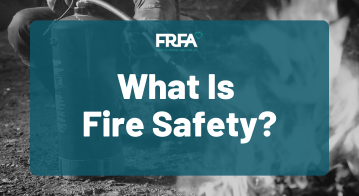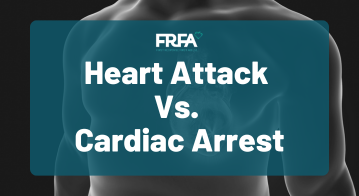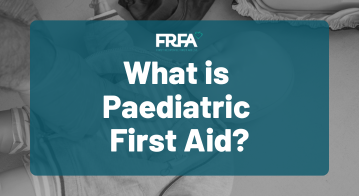What Is Mental Health First Aid? | First Aid Training Courses
Discover what Mental Health First Aid is, why it matters, and how MHFA training can help you support others with confidence. Learn more about certified courses, common situations, and workplace benefits.
Introduction
Mental health is just as important as physical health, yet it can be a harder topic to talk about. In recent years, there's been a growing awareness of the impact mental health has on our lives, whether this is at work, at school, at home, or in the wider community. While many of us know how to help someone with a sprained ankle or a cut, we’re often unsure how to support someone struggling with anxiety, depression or stress.
This is where mental health first aid comes in. Like physical first aid, the goal of mental health first aid is to recognise when someone might need help, be able to offer initial support, and then guide them towards a professional that can ensure they get the help that they need. In this blog, we’ll explore what mental health first aid is, why it matters, and how it can make a real difference in the workplace and everyday life.
What is Mental Health First Aid?
Mental health first aid (MHFA) is a training based approach that teaches people how to recognise the signs and symptoms of common mental health problems and how to respond appropriately. It’s not about diagnosing conditions or offering long term support, it’s about being that first point of contact, offering reassurance, and encouraging them to seek professional help if needed.
Think of it as the mental health equivalent of physical first aid. When someone is injured, a first aider steps in to provide immediate care until further help arrives. Mental health first aid works the same way, by providing compassionate support when someone might be experiencing emotional distress, crisis or struggling with their mental health.
The training is designed to be accessible for everyone. Whether you’re a manager, teacher, colleague, friend or family member, MHFA gives you the confidence to approach someone and start a conversation that might just save their lives.
What Does A Mental Health First Aider Do?
A mental health first aider acts as a supportive point of contact for someone who may be experiencing mental health issues. Crucially, being a mental health first aider does not mean that they are therapists or counsellors, and cannot be a replacement for professional help. They are trained to listen, offer reassurance and guide the person towards appropriate support.
Here are some of the key things a mental health first aider does:
- Recognise early signs of someone struggling with their mental health - such as changes in mood, behaviour, or performance.
- Approach and support someone in distress - offering a safe, non-judgemental space to talk.
- Use active listening skills - showing empathy and understanding without trying to ‘fix’ the problem.
- Encourage self help or professional support - like speaking to a GP, therapist or crisis service.
- Maintain confidentiality - unless there is a risk to safety or a safeguarding concern that requires escalation.
In a workplace setting, a mental health first aider might also promote wellbeing initiatives, raise awareness and challenge stigma around mental health, to contribute towards a more open and supportive workplace culture.
Common Situations Where Mental Health First Aid Helps
Mental health first aiders are trained to respond to a variety of different situations, some that require urgent attention, and others where early support can make a big difference. Below are some common scenarios where MHFA can be valuable:
- Stress or burnout at work - a mental health first aider might notice a colleague becoming overwhelmed, irritable, or withdrawn, and step in for a supportive conversation before things escalate.
- Anxiety or panic attacks - knowing how to stay calm, offer reassurance, and guide someone through grounding techniques can be crucial in this moment.
- Low mood or signs of depression - whether it’s a friend who’s been isolating themselves, or a teammate showing signs of hopelessness, a mental health first aider can help start an open conversation.
- Self-harm or suicidal thoughts - mental health first aiders are trained to respond to crisis situations safely and appropriately, like how to ask difficult questions, and how to know when to call for emergency help.
- Ongoing mental health conditions - for those already living with a mental health diagnosis, having someone who understands and respects their experience can help reduce stigma, encourage support and help them ask for reasonable adjustments.
What Training Is Involved?
To become a mental health first aider, you must complete a certified training programme that provides practical skills for understanding and responding to mental health issues. We offer several different accredited courses that suit different people, roles and time commitments.
Mental Health First Aid (RQF Level 2)
Duration: 1 day
- Gives learners the knowledge to recognise common mental health conditions, initiate supportive conversations, and signpost individuals to professional help.
- Includes understanding stress, substance abuse, and a structured First Aid Action Plan for mental health.
Duration: 16 hours (split into 4 hour sessions)
- Developed by MHFA England, covering recognition of mental health issues, active listening, use of the MHFA action plan, crisis first aid (e.g., for suicidal ideation, psychosis, self‑harm), and how to support recovery.
- Certification valid for three years, with participants invited to join the MHFAider community—and access ongoing support including digital tools and resources.
- Fully remote course, ideal for workers who need to work through the courses, and can’t join an in person class.
First Aid for Youth Mental Health (RQF Level 2)
Duration: 1 day
- Suitable for anyone who actively connects with children, such as parents, carers, teachers, youth group leaders etc.
- Designed with children in mind, covering areas such as depression, self-harm, eating disorders, and bullying.
- Valid qualification for 3 years from the date of the achievement, with annual refreshers recommended when working with children.
Why Mental Health First Aid Is Important
Mental health first aid isn’t just a nice-to-have, it is becoming a vital part of creating a healthier, more supportive environment at work, school, and in our communities. Here’s why it matters:
- Early intervention saves lives: Recognising the signs of mental health issues early can help prevent things from escalating into a crisis. A simple conversation at the right time can lead someone to get the help they need.
- It reduces stigma: 1 in 4 people in the UK will experience a mental health problem each year, yet stigma remains a major barrier to seeking help. MHFA helps normalise mental health conversations, creating safer spaces for people to open up.
- Improved wellbeing at work: According to the Health and Safety Executive (HSE), over 17 million working days were lost in 2022/23 due to work-related stress, depression, or anxiety. Having trained Mental Health First Aiders can reduce absenteeism and promote a more positive, resilient workplace culture.
- Legal and ethical responsibility: Employers have a duty of care to their staff. Mental health is now recognised alongside physical health in workplace health and safety guidance, and many organisations are now embedding MHFA into their wider wellbeing strategies.
Save £££ on Mental Health Training
We’ve partnered with MHFA England to bring you their accredited Mental Health First Aid Course to help boost your knowledge and support your team. This online course is broken down into 4 easily digestible video call sessions, and is open to everyone! However, if you are in the care or construction industry, you may be eligible to get over £120+ back per learner through the LDSS and CITB Funding Schemes! To find out more, drop us a message and one of the team will be happy to talk you through every step. Take action today to help save a life tomorrow.
Final Thoughts
Mental Health First Aid is more than just training,it’s a powerful step toward creating more compassionate, supportive environments where people feel seen, heard, and valued. Whether it’s in the workplace, a school, or your local community, having someone who knows how to listen and respond to mental health challenges can make a real difference.
As awareness of mental health continues to grow, so does the responsibility we all share in looking out for one another. By becoming a Mental Health First Aider, you’re helping to build a culture where it’s okay to talk about mental health, and where help is always within reach.
If you're ready to take that first step, there are accessible, accredited courses available across the UK. You don’t need to be a professional, you just need to care.




















.png)















